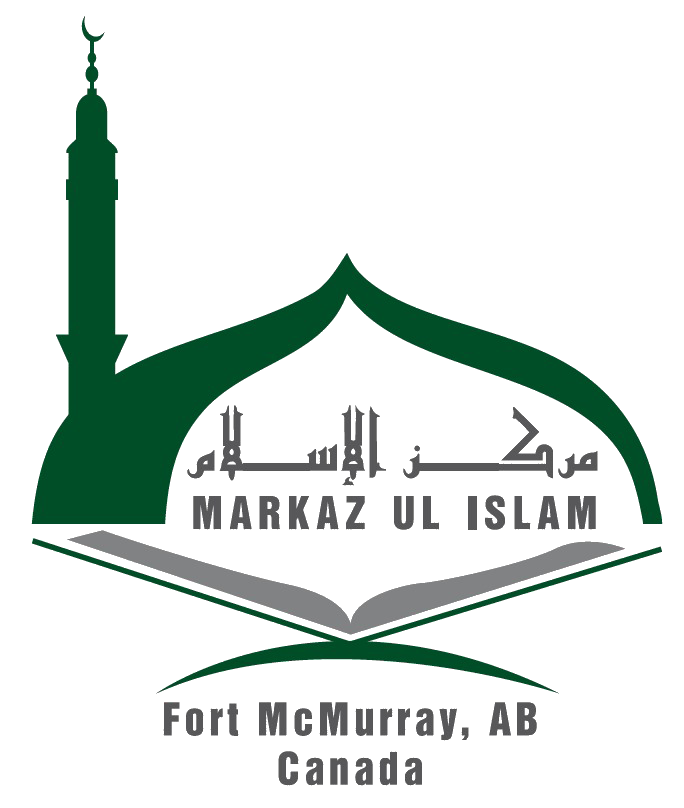by Kiran Malik-Khan Markaz ul Islam Volunteer

Like many others, I used to think that believing and saying “I don’t see colour,” meant solidarity in equality and equity for everyone. Not so. The Black Lives Matter movement taught me otherwise. And, Gilary Massa helped further change my viewpoint beautifully: “I want you to see my colour; just like I want you to see I’m a Muslim.” Noted and applied.
Originally from Panama, Massa, an Afro-Latina Muslim is a well-known human rights advocate. She is the Human Rights and Outreach Officer for the Toronto District School Board and has been an anti-oppression and equity educator/facilitator for 15 years now. On June 27, 2020, she hosted a virtual workshop on Strengthening Black Community Allyship. Presented in collaboration with Markaz ul Islam, the Islamic Centre of Fort McMurray, and Islamic Relief Canada, the insightful session was attended by a cross-section of the community including several youth, which was heartening to see.
Massa spoke about the importance of framing social justice conversations in an Indigenous lens.
“We can never work to end systematic and institutional violence if we do not centre the narratives of Indigenous peoples in our collective decision-making for social justice and equity.”
And, she emphasized how Islam is the “great equalizer,” with our religion’s focus on every race being equal, and nobody being superior to another except in piety and good action as reminded by our Prophet Muhammad (Peace Be Upon Him) during his last sermon. To summarize a portion of Surah Hujarat (49:13) in the Quran, Allah has made us different “into nations and tribes,” so we can “know one another.”
Massa also pointed out examples of Black Muslim erasure in Islamic history highlighting how Fatima Al-Fihri, an African Muslim woman who founded the first-ever university is also not mentioned as an African. These stark stereotypes and omissions are for us to identify and rectify moving forward.
Speaking of moving forward, the difference between being non-racist, and anti-racist is important to understand. Massa pointed out the former is “passively opposed to racism and takes a natural role against racism…without taking action…saying things like ‘I don’t see colour. I treat everyone equally.’ While an anti-racist sees racism as “part of a larger system of oppression…They see themselves as part of the problem and continue to learn and unlearn their own internalized racism…thinking about how they can give up their personal power in favour of hearing from racialized voices.”

Mohamed Ali AlZabidi, President, Markaz ul Islam, appreciated the efforts from Islamic Relief Canada in bringing the workshop to community leaders.
“Part of the problem is not recognizing we have a racial problem, so we have to find ways to fix and deal with this. We want to create awareness when it comes to speaking about these issues within our community and with family members, so we have the tools for solutions. Some of us bring racial issues from back home and start applying them here. Our youth don’t culturally and socially isolate, which is good to see. It was also good to see youth attend the workshop, and learn what the right approach is.”
Amirah Azmi, 20, was one of the youth attendees. A local resident, completing her BSc in Health Science at Mount Royal University, Amirah felt the session was “much-needed in our community.”
“Sister Gilary covered topics that might have been uncomfortable to hear, but necessary. We have a responsibility to recognize our own roles in the systems of oppression existing in our society, especially in our Muslim community. I was happy to see a variety of attendees because these topics affect everyone, regardless of age. I can’t wait to see how our community puts this newfound information and knowledge into action.”

Shaikh Maqsood Sher, one of the leaders of the Muslim congregation agrees. He found the presentation to be “excellent, informative and thought-provoking.”
“I learnt how racism is affecting our Muslim communities and the steps we can adopt to be more inclusive. It personally compelled me to think about all the privileges I enjoy and how so many are deprived. I ask Allah to help me stand and speak out against injustice. I would like to thank Islamic Relief Canada, Markaz ul Islam and specifically Sister Gilary Massa.”
Massa, who was on a whirlwind virtual tour of presentations to Muslim communities – 17 in two weeks, appreciated everyone who attended and hopes the takeaways last.
“Historically, we all need moments of change; George Floyd’s death was one such moment. I’m doing my part for those who are eager to take action, and am humbled by it. I’m relieved to see the uptake on these important conversations, which I hope will result in self-reflection. I want the Muslim and broader communities to connect with Indigenous communities because cross-cultural connections are important. Remember, Allah doesn’t need for us to be perfect; He just needs us to show up.”
Here’s to showing up. It will always matter. Always.
Disclaimer: The views and opinions expressed by any individual other than Markaz-ul-Islams’ employees do not necessarily reflect the official policy or the position of Markaz-ul-Islam. Any content provided by anyone reprints their own views and not Markaz-ul-Islam.
About the author: Kiran Malik-Khan is a freelance journalist, who loves writing stories about Fort McMurray and highlighting diversity, equality and equity for all. She is a national award-winning communicator, a TEDx Fort McMurray speaker, and a social media specialist. Named Top 50 under 50 by YMM Magazine (2016), she is the co-founder and Public Relations Director for NorthWord magazine, Wood Buffalo’s first and only literary journal. Kiran is also the co-founder and president of World Hijab Day Fort McMurray, a committee that has brought the conversation about the Islamic headscarf front and centre in our region. You can find her on Twitter @KiranMK0822

